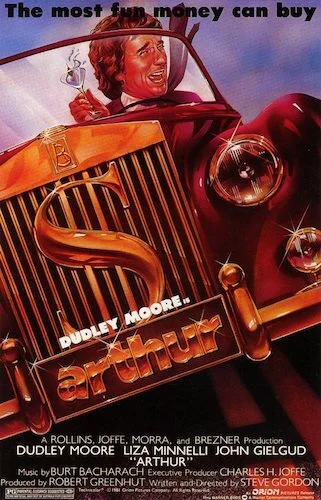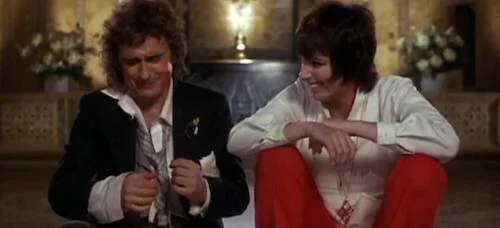Arthur: On-This-Day Thursday
Every Thursday, an older film released on this opening weekend years ago will be reviewed. They can be classics, or simply popular films that happened to be released to the world on the same date.
For July 17th, we are going to have a look at Arthur.
We’ll never truly know what could have been of the new filmmaker Steve Gordon, who died of a heart attack two years after his only feature film (as a director) Arthur was released. Back in 1980, Arthur was the go-to comedy of the awards season, doing better than straight up comedies may ever do during this season again (outside of rare occasions like A Fish Called Wanda, or My Cousin Vinny, these kinds of instances). Now, Arthur is kind of just that film that existed, with the occasional funny line, and the O to Sir John Gielgud’s EGOT. Then, there’s that atrocious Russell Brand version, which revived the Dudley Moore original, if not for comparison-for-sanity’s sake. Arthur has its circles, but I’d argue there aren’t many people of the generations after those that first saw Arthur on the big screen that actually care to seek it out.
Is it worthy of such neglect? Well, the premise of a billionaire drunk that squanders away his finances may not appeal to everyone today, even though Moore’s inebriated stupor is still a little funny to listen to. Then, there’s the safe, formulaic approach to the story, which is really not the largest surprise in the world, given Arthur’s romantic-comedy approach (the titular Arthur Bach can only personally own his share of his namesake’s fortune if he marries the daughter of one of his father’s clients, yet he falls in love with quirky Linda of lesser means). All of that is extremely by-the-numbers, but no one’s really here for the story, are they? No, they want to hear the countless one-lines Arthur dishes out, particularly from Gielgud’s film-stealing valet named Hobson, whose snarky sarcasm and emotional seepage really makes him the most likeable person here. His anguish is shared by us, and he speaks for us.
Arthur and Linda.
Arthur himself may become a bit of an irritation, but that’s part of the fun (if you can allow yourself to see it this way). For a good time, Arthur is mostly mindless, with joke after joke and stupidity galore. There is still a foundation here between Arthur and Linda, meant to be the crux of the narrative and the main reason why we’re all here. Even if heart comes second to humour, Arthur is at least somewhat of a tale of love and self realization. To me in 2020, it’s the tip of the iceberg for Steve Gordon, who was testing the waters. The witty or silly dialogue on top of a basic story is clearly a test run for Gordon (or so it seems; I suppose we’ll never really know for sure). The future after Arthur remains impossible to detect, and this remains one of those what-could-have-been scenarios. With a pinch of New Hollywood edge and an awareness of early ‘80s warmth, Arthur is a dead-end stop that will satisfy some more than others, but it’s at least a notable enough first (and sadly last effort) by a director who was just getting into the swing of things.
Andreas Babiolakis has a Masters degree in Film and Photography Preservation and Collections Management from Ryerson University, as well as a Bachelors degree in Cinema Studies from York University. His favourite times of year are the Criterion Collection flash sales and the annual Toronto International Film Festival.






